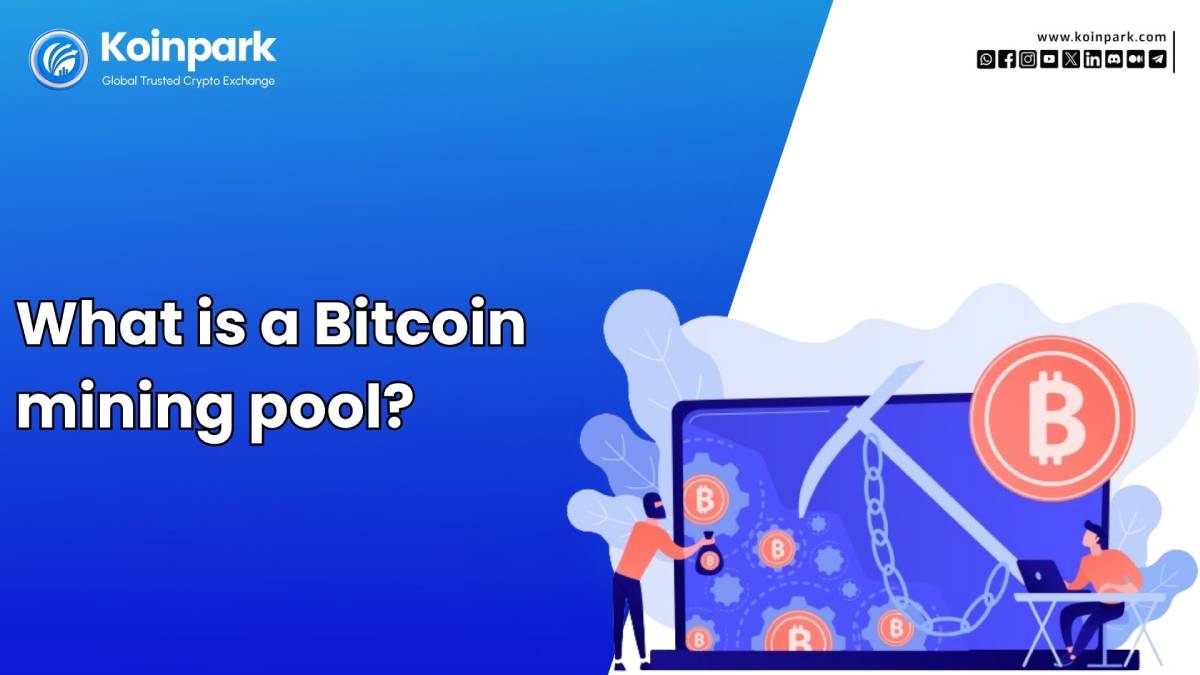Bitcoin mining pools are like teamwork in the world of cryptocurrency. Instead of one person trying to mine bitcoins alone, many people join forces to increase their chances of success. Let's take a closer look at how these pools work and what they mean for Bitcoin.
What is a Bitcoin mining pool?
Think of a Bitcoin mining pool as a group project. Instead of everyone working separately, miners join together to combine their computer power. This teamwork helps them have a better shot at mining new bitcoins. In the early days of Bitcoin, people could mine it using their computers.
But as more people started mining and the process got more complicated, it became really hard to do it alone. That's where mining pools come in. If you're looking to buy Bitcoin, joining a mining pool might not be your first step, but it's a crucial aspect of the Bitcoin ecosystem.
How Mining Pools Work
Joining a mining pool is like signing up for a club. Miners pick a pool they like, create an account, and set up their mining equipment to connect to the pool's server. Once they're in, the pool's server gives each miner a job to do, called "shares." These jobs involve solving complicated math problems related to Bitcoin transactions.
Miners use their computers to work on these problems and send their solutions back to the pool's server. The pool's server checks these solutions to make sure they're correct. At the same time, it's also looking for the answer to a big puzzle: how to create a new block in the Bitcoin blockchain.
When someone in the pool finds the answer to that puzzle, everyone gets rewarded! The reward is divided among all the miners based on how much work they did.
If you're interested in cryptocurrency mining and are considering joining a mining pool, you might also want to explore options like a cryptocurrency exchange app or global cryptocurrency exchange where you can buy, sell, or trade various cryptocurrencies, including Bitcoin.
Advantages of Mining Pools
- Better Chances of Getting Rewards: Working together in a pool increases the odds of finding new bitcoins.
- Stable Income: Even if you don't find a Bitcoin block yourself, you still get some rewards for the work you've done.
- Less Ups and Downs: Mining pools smooth out the highs and lows of mining, so you get a more consistent flow of rewards.
Additionally, if you're considering diversifying your cryptocurrency portfolio, you might want to explore token listing on various exchanges, which can offer opportunities to buy crypto beyond just Bitcoin.
Disadvantages of Mining Pools
- Fees: Pools usually take a small percentage of the rewards as a fee for their service.
- Centralization: Some worry that big mining pools could become too powerful and control too much of the Bitcoin network.
- Trust: You have to trust the pool operator to divide up the rewards fairly.
Different Kinds of Mining Pools
- Pay-per-share (PPS): Miners get a fixed reward for each job they complete, whether the pool finds a Bitcoin block or not. Proportional: Rewards are divided up based on how much work each miner did compared to the whole pool.
- Peer-to-peer: These pools try to spread out the power more evenly by not relying on a central operator.
- Cloud Mining: Instead of owning your mining equipment, you can rent computer power from a company.
Additionally, for those seeking a decentralized approach to trading, P2P exchanges offer direct transactions between users without the need for intermediaries.
In Conclusion
Bitcoin mining pools are like teamwork in the world of cryptocurrency. By working together, miners have a better chance of earning rewards. But there are also risks, like fees and concerns about too much power in the hands of a few big pools.
As Bitcoin continues to grow, it's important to find the right balance between the benefits of mining pools and keeping the currency decentralized and secure.





Comments